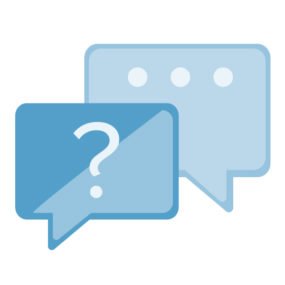This shift in teaching and learning emphasizes the important digital citizen skills our students will need in a rapidly changing world. If you have specific questions about your child’s classroom technology use, talk with your child’s teacher or principal.
Distance Learning - Filter Restriction Changes
Student Privacy and Internet Filters
Our district adheres to the FCC’s Children’s Internet Protection Act (CIPA), Children’s Online Privacy Protection Act (COPPA), and Family Educational Rights and Privacy Act (FERPA). All applications and websites used on student devices must meet specific criteria.
- The Children’s Online Privacy Protection Act (COPPA) was enacted in 1998 and is meant to give parents control over the online collection, use, or disclosure of personal information from children age 13 and under.
- The Children’s Internet Protection Act (CIPA) was enacted in 2000 to address concerns about children’s access to obscene or harmful content on the internet.
- The Family Educational Rights and Privacy Act (FERPA) is a Federal law that protects the privacy of student education records.
Internet connectivity on all student devices (for example iPad or Chromebook) is always routed through the school district’s internet filter ensuring student privacy and grade-level appropriate content. While the district has the ability to monitor downloaded apps, it does not have the ability to view content within apps. There are no specific home wi-fi speed requirements for our learning platforms.
Internet Filters
Content is filtered on student devices at school and at home and is filtered by website categories. Content filters usually involve several methods for blocking undesired content, including blocking certain URLs or entire domains, dynamic content filtering based on keywords or phrases, blocking certain file types (audio, image, or executable files) and limiting or blocking bandwidth for certain sites, in combination with security or firewall features, blocking viruses and malware.
For example, sites categorized as social media and music streaming are filtered and not allowed on elementary student devices. Sites like Facebook and Instagram cannot be accessed on an elementary student iPad. Sites categorized as educational, such as National Geographic Kids, pass through the filter and are allowed on student devices.
While the content filter works based on the website URL it cannot filter content within a page such as images. This can be a concern with sites such as Google image search. Teachers are directed to use education-focused resources for images in student projects.
In order to provide Distance Learning, many tools had previously restricted can be valuable for remote learning. In order to increase both engagement and accessibility to online resources, restrictions to YouTube, Google Meet, and Google Chat will all be changed.
- YouTube will allow students to access some excellent educational videos.
- Google Meet and Google Chat will allow teachers to arrange whole and small group meetings with students and also allow students to reach out to their teacher or peers with questions.
While we had previously restricted these tools because of concerns with students accessing inappropriate materials or using the tools to bully or harass, we now see these tools as essential for offering supplemental learning to students while they are at home.

Devices and Use
New technology devices are a powerful tool to engage students and promote learning.
